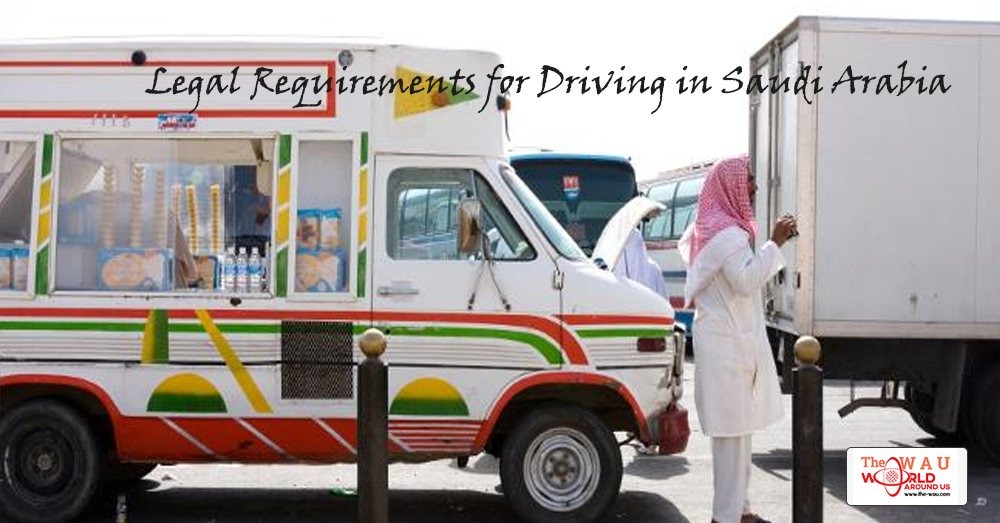Driving in Saudi Arabia is thrilling for some and frustrating for others. Our InterNations guide introduces you to the basics of driving in Saudi Arabia and covers road infrastructure, safety concerns, purchasing a car and the notorious ban on women behind the wheel.
Dangers of Driving in Saudi Arabia
Driving in Saudi Arabia is undeniably dangerous. According to a 2013 World Health Organization report there are only 19 countries in the world with a higher road traffic death rate per capita. The number of road deaths per year has been on the rise in recent years. There were less than 4000 in 2000 and over 6500 in 2010. Today this translates as an average of around 19 deaths per day. Unfortunately, the majority of these accidents are caused by bad driving. Human factors cause about 85% of all accidents. In fact, one third of accidents are merely due to drivers not stopping at red lights. Other common causes are excessive speed, illegal U-turns, and reckless behavior.
A lot of young men treat driving like a hobby or a sport. It is not unusual to see teenage boys drifting with a crowd gathered around to watch. This obviously makes the roads even more dangerous.
Saudis are well aware of these fatal problems and local media has been vocal in demanding the government to do more. Although SAHER is a step in the right directions, some drivers undermine the system. There have been news reports of men vandalizing the machines and even the employees who operate the cameras (to the point of death). This isn’t exactly encouraging news for people who are trying to make driving in Saudi Arabia safer.
Public transport barely exists, so if you’re moving to Saudi Arabia it is inevitable that you’ll get around by car. If you do not feel comfortable driving in such conditions, then look into hiring a driver that you trust. This is of course a more costly option, but being able to react quickly, confidently, and effectively is vital.
Driver’s Licenses
Foreign men may drive in Saudi Arabia for a short term of up to three months. After this they must apply for a Saudi driver’s license. Saudi Arabia has a license agreement with selected countries such as the United Kingdom, Germany and the United States. Male citizens from these countries can simply exchange their license for a Saudi one. To do so, drivers from these countries must bring the following documents with them to the local traffic police.
- two copies of the original license
- an official translation of the license into Arabic
- iqama ID card (green card)
For men of other nationalities it is more complicated. They need to take a written and practical test, as well as a bring proof of blood type, a copy of their passport, the notarized translation of their original license, an eye test, and their iqama card, as well as pay a fee. It is best to contact the General Department of Traffic to inquire regarding the procedure.
The legal minimum driving age is 18. However, it is not unusual to see boys as young as 10 or 12 driving, especially in rural areas.
Purchasing and Registering a Car in Saudi Arabia
Although Saudis eagerly purchase new cars, and some very expensive ones too, to do so as an expat is challenging. The paperwork required of expats is bound to dissuade even the most enthusiastic of car owners. Additionally, new cars are expensive and almost instantly decline in value after being exposed to the wear and tear of Saudi driving habits and extreme weather conditions.
Instead, it is much easier to hire a car with a long-term lease, or buy a second-hand vehicle from another expat. Keep in mind that if you want to buy a car, Saudi banks are strict when it comes to lending money to foreigners.
If your work has transferred you to Saudi Arabia, it is usually standard for your company to provide you with a company car (with the exception of teachers).
Regarding the pros and cons of importing a car versus leasing/purchasing one, the latter wins. One reason is that in addition to the complexity of importing a car and the paperwork required, cars in Saudi Arabia have been made for a particular climate. Therefore, a car from Northern Europe may have to be modified to perform properly in a desert climate. A European car may have been made to handle snowstorms, but not necessarily sandstorms.
To register your car you must visit the local Traffic Police Center. Check with them beforehand to confirm what paperwork to bring along. The term for vehicle registration is Istimarah.
Insuring your Car
It is now required to have car insurance in Saudi Arabia, although this wasn’t the case just a few years ago.
You can be fined for not having an insurance policy (Ruksa). Saudi Arabia has a Traffic Violations Points System and too man fines result in a revoked license. It is required to have either third party insurance or comprehensive Insurance. Due to the frequency of accidents in Saudi Arabia, it is advisable to invest in full comprehensive coverage.
If you end up leasing a car, the dealership can normally assist you with insurance if it isn’t already included in your lease.
Call the traffic police immediately if you get into an accident (993) and do not leave the scene of the crime. If you are asked to sign any paperwork in Arabic and you do not speak the language, either refuse or clearly write on the document that you do not understand what you are signing. This will help you in case you’re left with the blame of the accident.
Share This Post















